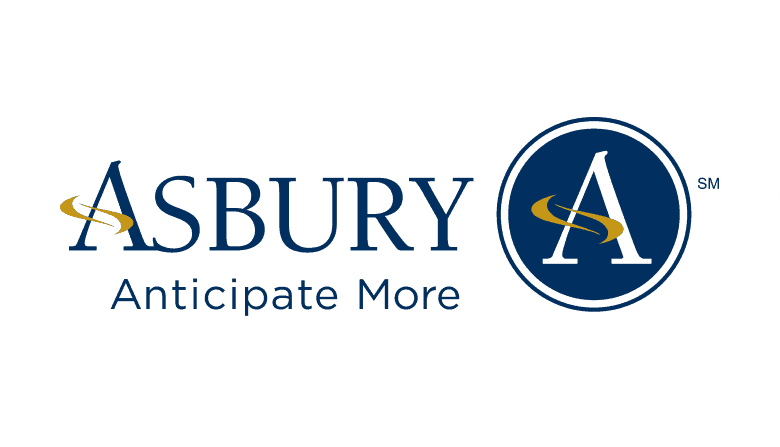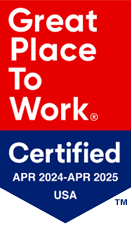Working Past the Official Retirement Age
The “New” Retirement
What’s the hottest labor demographic today? People working well past the traditional retirement age into their 80s and beyond.
Over the coming decade, these older adults will be the fastest-growing segment of the workforce, according to the Bureau of Labor Statistics. Reasons vary widely, but whatever the motivation, science approves.
Meet four Asbury residents who share how and why they stepped off the retirement path.
A Satisfying Turn
After more than 35 years in global health and international development, Sharon Rudy has traveled the globe and met her share of world health leaders, including Anthony Fauci and Mother Teresa.
Much of Sharon’s career involved promoting changes in health behavior on a national level. While working for Johns Hopkins in Tanzania, she produced the country’s most popular radio soap opera. Not only were the storylines compelling enough to bring in big ratings, but they also included messages about AIDS, family planning and more. Now retired from her role as Senior Global Health Director at the Public Health Institute, Sharon continues to consult on projects and leads her own coaching firm for global health leaders, TeamRudy, from her apartment at Asbury Methodist Village in Gaithersburg, Md.
Sharon holds a doctorate in Counseling and Organizational Consulting and is a published researcher and soon-to-be author, and contributor to several books on global health employment trends and the competencies needed for the next generation of global health professionals.
“I’m a failed retiree,” Sharon laughs. “I had this accumulation of experience and knowledge, and wasn’t seeing my point of view expressed, so I decided to write a book.”
“My life is not about working or retiring,” says Sharon, who notes that moving to Asbury “turbo-charged” her career by removing so many of the to-do’s that come with home ownership. The extra income she earns is welcome, but the real appeal lies in “the creativity, the satisfaction at the end of a day” of doing a job she knows well.
Pursuing a Purpose
Ask Hank Piorkowski about one of his proudest professional memories, and he will tell you about traveling by train from Erie, Pa., to Long Beach, Calif., to visit his sister. Before long, Hank noticed he was sitting in one of the very train cars he helped build decades ago – that was still getting people safely to their destinations. That sense of accomplishment was a main factor in Hank’s decision to un-retire from a 41-year career with General Electric’s transportation division. At first escaping the daily grind seemed like a relief, but over time he found the novelty of being on “permanent vacation” started to wear off.
“Working is a personal decision — and it’s not all or nothing. I have created my own version of retirement,” says Hank. “I missed the sense of identity and purpose that came with working, the structure it gave my days, and the social aspects. Instead of feeling free, relaxed, and fulfilled, I started to feel isolated.”
Research on returning to work shows benefits to decisions like Hank’s. Especially after age 65, it reduces your risk for certain chronic illnesses and depression and slows cognitive decline. Today, he works part-time for a local car dealership as a vehicle security specialist, as an usher at the Erie Insurance Arena, and as a ticket-taker at the Warner Theater. Walking the lot to ensure 400 cars are locked is good exercise, and he loves being able to see hockey games, concerts and shows. Hank and his wife Bonnie still enjoy Springhill’s active lifestyle. Hank practices his golf swing, swims, plays on a horseshoe league, and tends his backyard garden and Springhill’s beautiful Butterfly Garden. “If your work excites you, you should keep doing it,” Hank says. “It will keep you interested and engaged with life. It’ll keep you curious.”
Advancing Science
Curiosity is the compass that leads marine biologist Mike Vecchione, who first went to sea at age 16 as a cabin boy on a three-masted schooner. Some 50 years later, Mike has devoted his career to deep sea exploration—bringing the secrets of the undersea world to the surface, specifically the biology, evolution, and life history of cephalopods (squids, octopods, and their relatives). “Studying deep marine organisms is important for understanding our planet because we can’t protect it if we don’t know what lives on it,” says Mike. “Somewhere between 95 and 99 percent of the living space on the planet is in the deep sea. And we know almost nothing about it.” When Mike and his water- and kayak-loving wife Susan moved to Asbury Solomons in Solomons, Md. the riverfront location was the primary attraction. The campus is also within commuting distance of Washington, D.C., where Mike works at the Smithsonian Museum of Natural History, in addition to teaching graduate courses at the College of William and Mary.
His Asbury apartment is the ‘base’ where he connects via a big-screen TV to technology that allows him to stream footage of undersea creatures via a remote hookup to an undersea submarine. Expedition vessels carry him across the oceans in pursuit of oceanographic knowledge. During his career, he’s conducted joint explorations with other countries, including a deep dive on a Russian submarine.
Like Sharon Rudy, Mike enjoys passing his deep knowledge base to the next generation and wants to continue as long as he can. “Advances in remote sensing, satellite communication and data collection, and live video feeds allow experts from across the globe to connect and share information in real time,” Mike says passionately. “Squids are cool animals. I hope my work inspires people to care about the ocean. Almost every time we look, we find something new.”
The Law
Ask Ed Myers about retiring, and he describes it this way, “It’s like when you’re at the helm of a ship and you’re coming into a harbor…it takes a long time to come to a full stop.” Ed makes the 13-minute commute several days a week from Bethany Village in Mechanicsburg, Pa., to the firm where he’s invested almost half a century practicing real-estate law, business law, and estate planning. According to the U.S. Census Bureau, Ed is part of the trend of one in six lawyers working beyond the average retirement age in America.
In addition to the accomplishment and intellectual challenge that come from his work, Ed admits that the camaraderie is an important component. “I get to meet a lot of interesting people…folks I know and don’t know,” he says. “And I enjoy working with my colleagues.” While Ed still maintains a robust work schedule, he’s looking forward to the day when he can spend more time enjoying the wooded view from the cottage he shares with wife Diane, the Bethany Village pool, and volunteer on campus. “There are a lot of things going on at the campus and I really haven’t started participating,” he admits. “I’m weaning myself from working long hours each week.”
So, what should we take away from the Asbury Working Seniors Club?
Everyone’s ‘why’ for working after the official retirement age is a matter of personal choice. And given the significant percentage of Asbury residents who continue to work in their long-term career or have pursued an entirely new direction, there are plenty of options to explore.
Sharon, Mike, Hank, and Ed agree that the decision isn’t a finish line or the end of their story, but just turning another page in the chapter of life.




